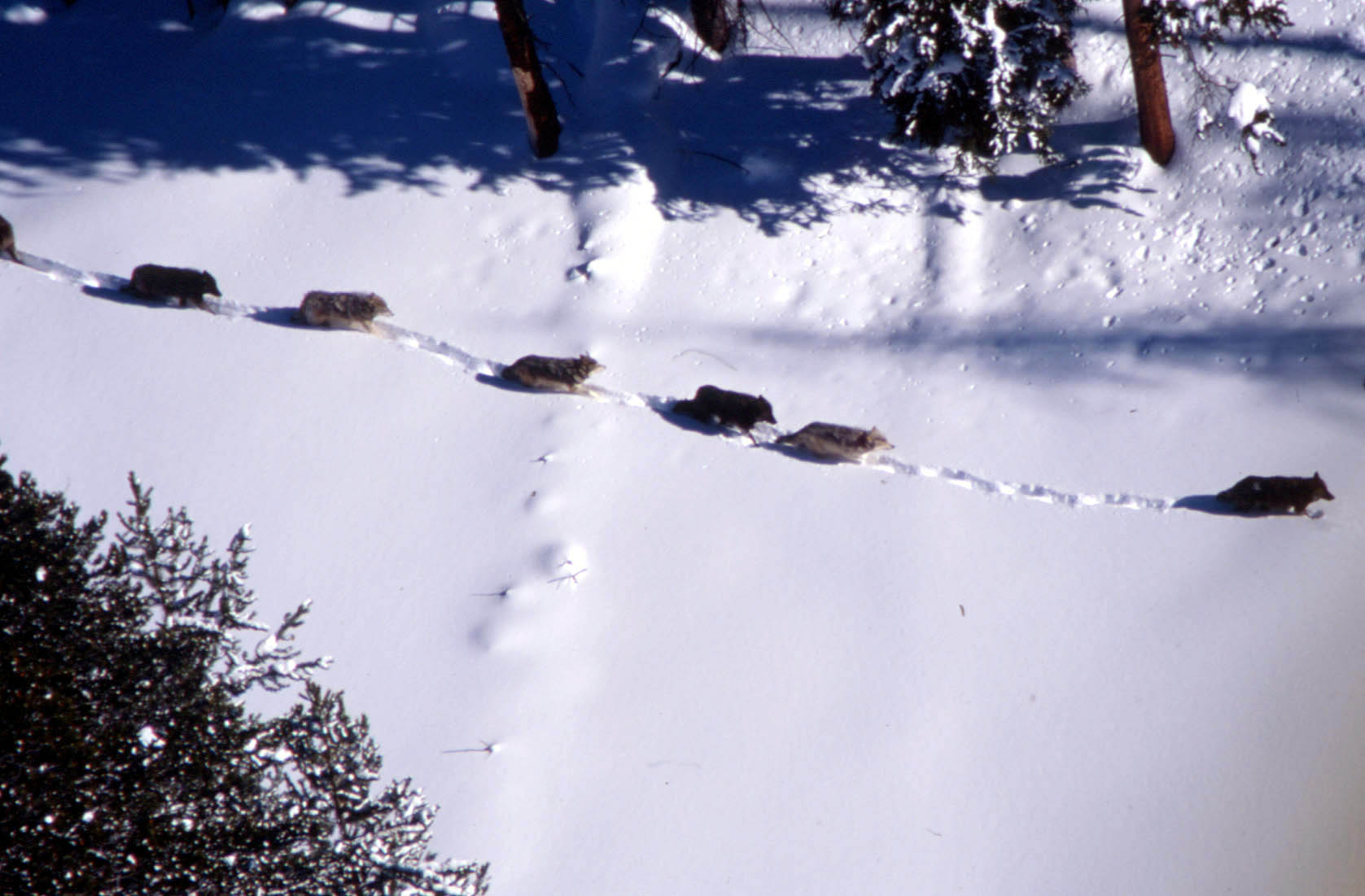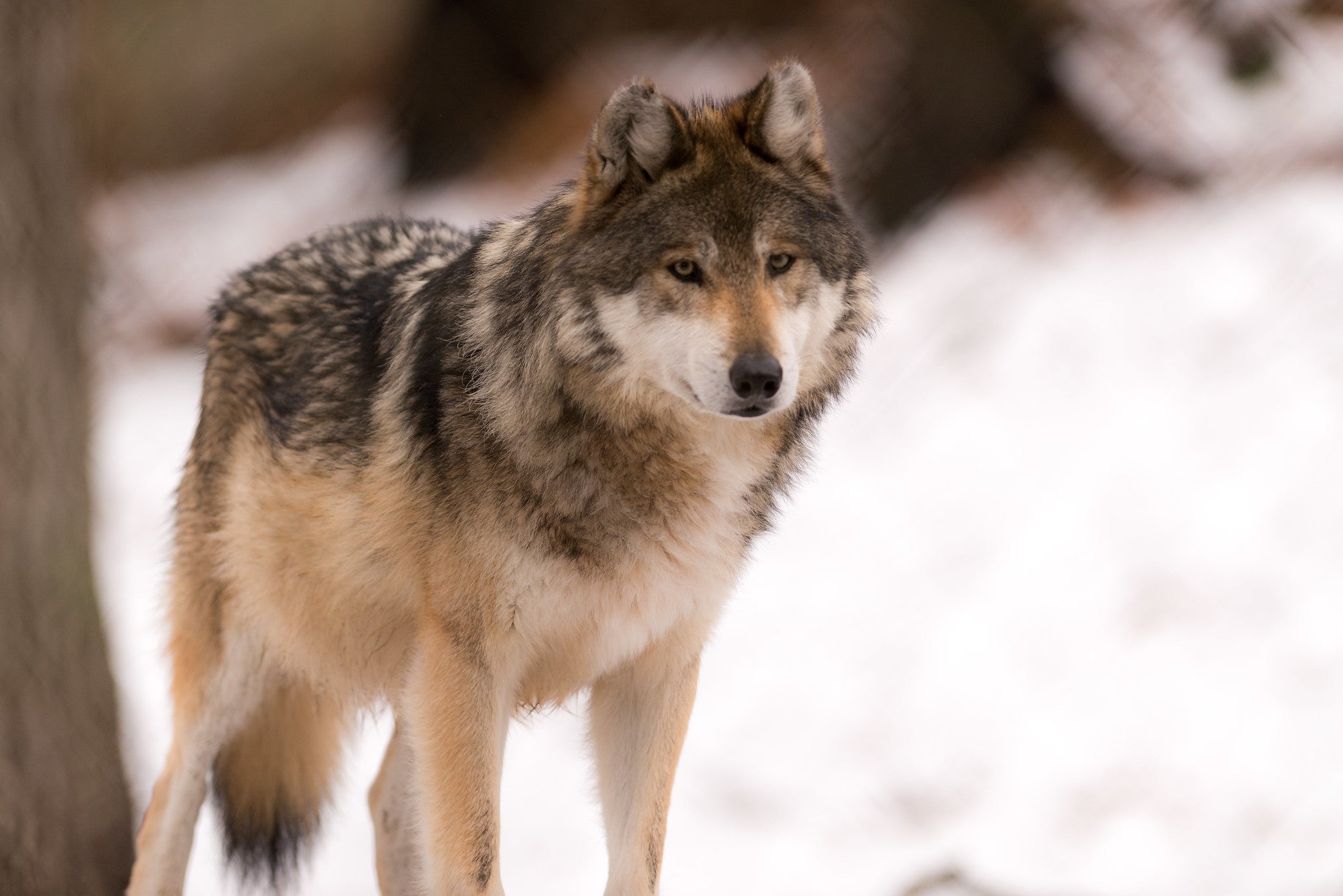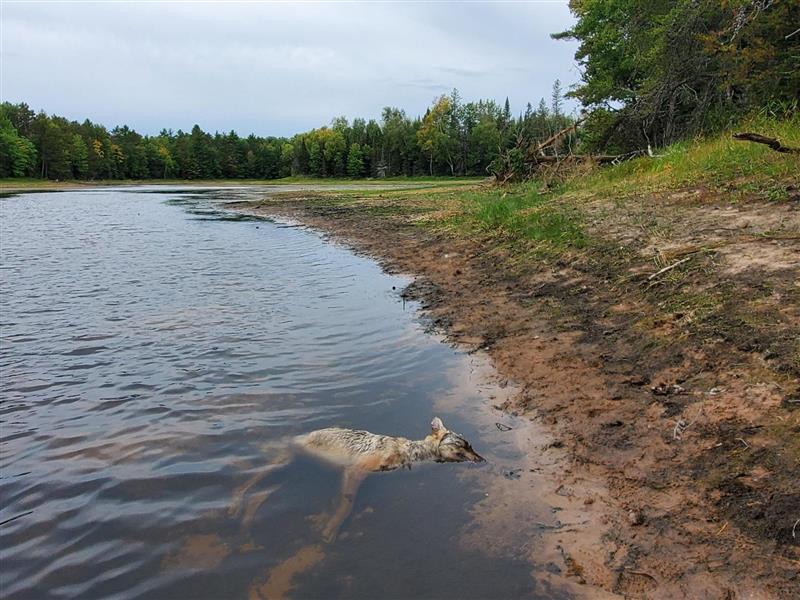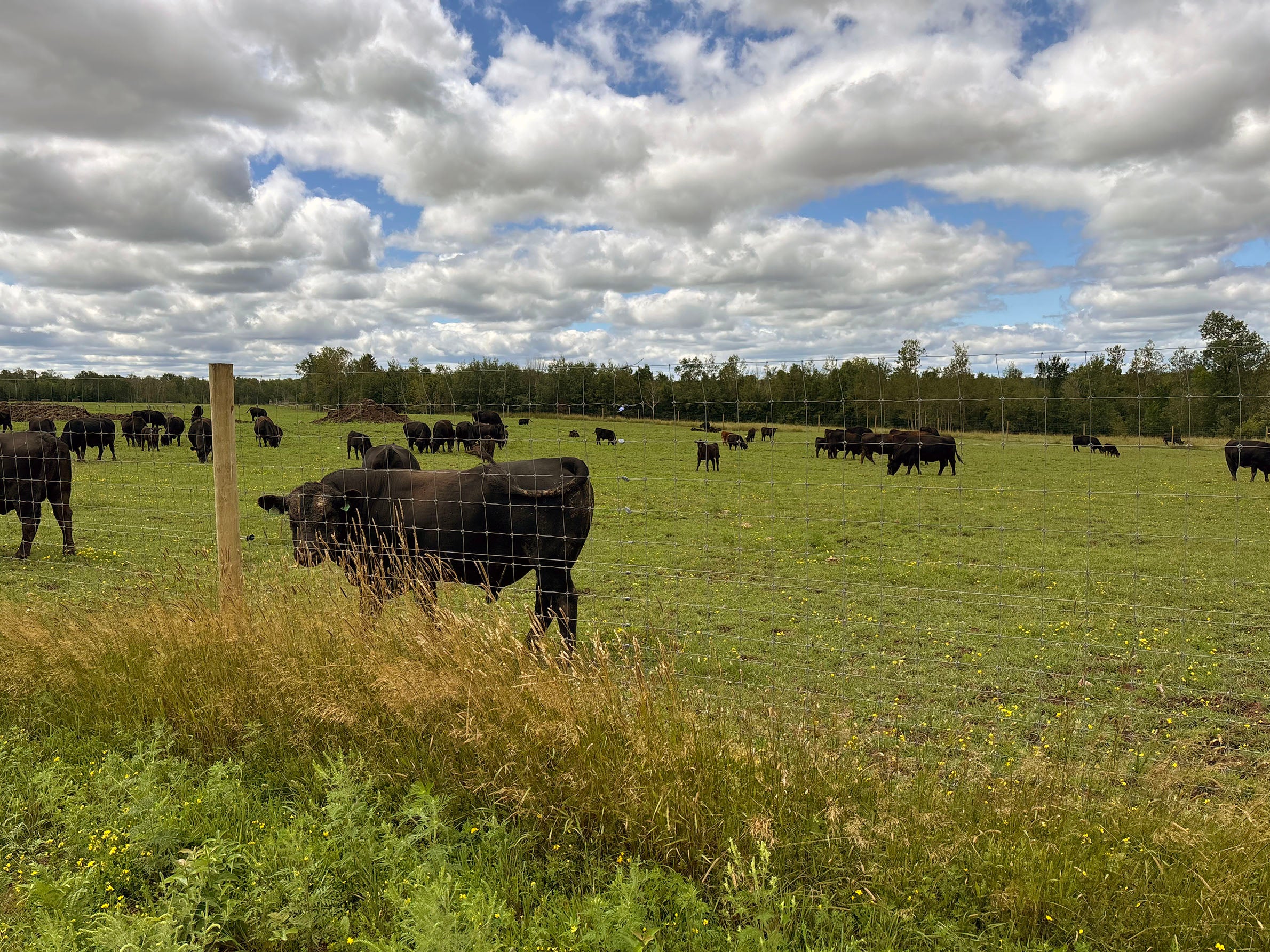Lawmakers in the U.S. House have passed a Republican bill that would remove gray wolves from the endangered species list across most of the country despite opposition from the Biden administration.
The House voted 209-205 to pass the bill introduced by Colorado Republican Rep. Lauren Boebert and co-sponsored by Wisconsin’s House Republicans. All five Republicans in the U.S. House supported the bill while Democrats Rep. Mark Pocan and Gwen Moore voted against the proposal.
In a statement Tuesday, Republican Congressman Tom Tiffany said he would fight for the bill’s passage in the U.S. Senate.
Stay informed on the latest news
Sign up for WPR’s email newsletter.
“The science is clear; the gray wolf has met and exceeded recovery goals,” Tiffany said. “(Tuesday’s) House passage represents an important first step towards restoring local control over the skyrocketing gray wolf population in Wisconsin.”
Four Democrats sided with Republicans on passage of the bill while four Republicans voted against the measure. The so-called Trust the Science Act would remove gray wolves from the Endangered Species Act, or ESA. It would also prevent any further judicial review of the animal’s status, ensuring wolves remain under state management. That would put Wisconsin’s new wolf management plan into effect.
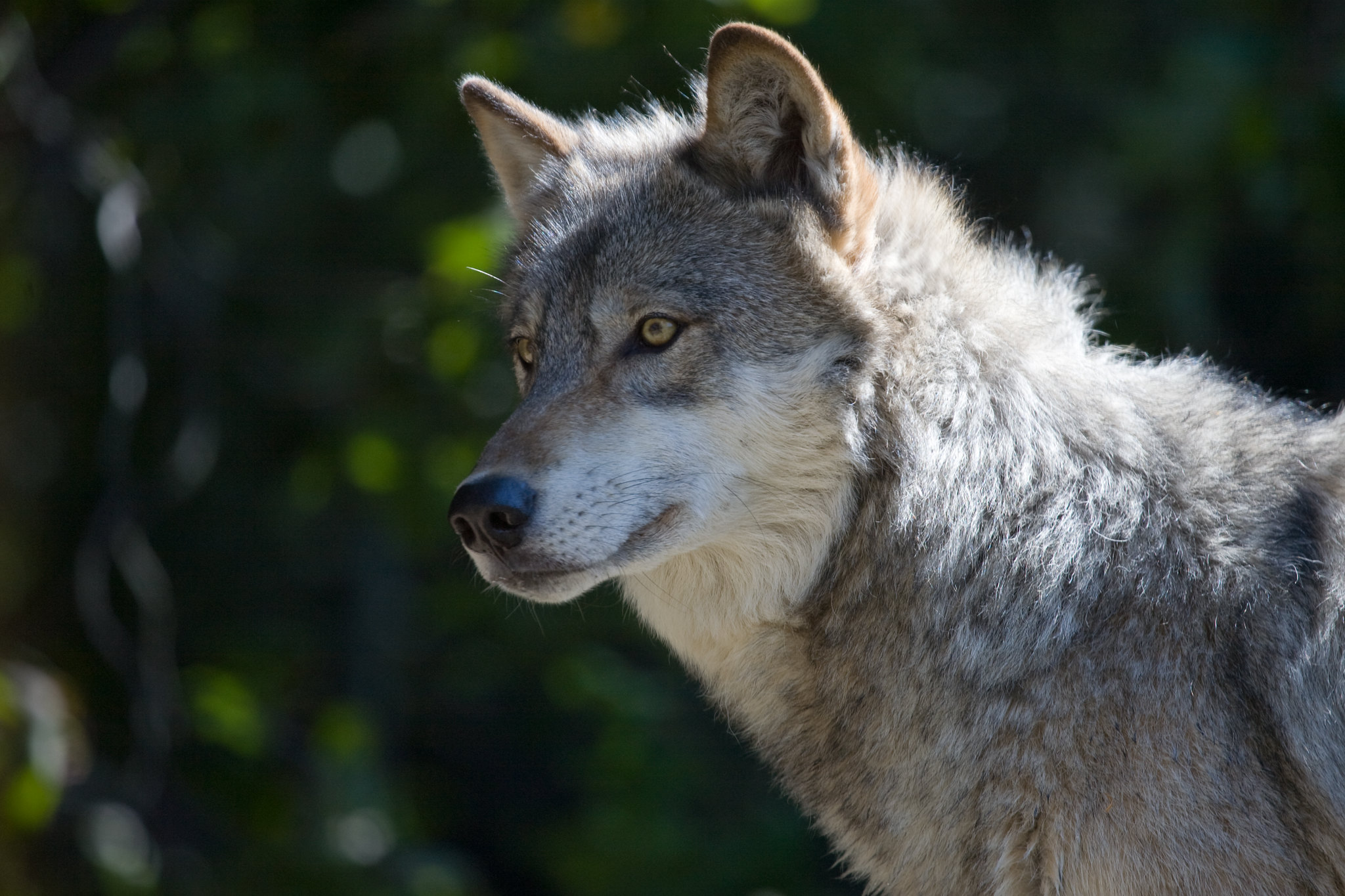
Biden administration opposes bill to remove federal protections
While its prospects are unclear in the U.S. Senate, the White House issued a statement Monday that the bill would “override and short-circuit” development of science-based rulemaking and recovery planning by the U.S. Fish and Wildlife Service. The agency is currently developing a nationwide recovery plan for wolves, which it expects to complete by the end of next year.
“The transparent and science-based process prescribed by the ESA, with public input, is the best path for adding or removing species from the ESA,” the statement reads. “If enacted, (the bill) would undermine America’s proud wildlife conservation traditions and the implementation of one of our nation’s bedrock environmental laws.”
As many as 5,000 wolves once roamed Wisconsin. However, lawmakers placed a bounty on the animal in the 1800s, and they were nearly hunted to extinction by the 1950s. Data from the Wisconsin Department of Natural Resources shows the animal’s population has grown to nearly 1,000 wolves in the last monitoring period — roughly four times the number of wolves in 2000.
Democratic U.S. Sen. Tammy Baldwin and Republican U.S. Sen. Ron Johnson have previously put forth legislation to delist the wolves in the Great Lakes region. Last year, Baldwin introduced a bill that suggested the threatened listing for Minnesota’s wolf population should be expanded to include Wisconsin and the Upper Peninsula of Michigan. The designation, which has been in place since 1978, would allow killing of wolves that threaten people, pets and livestock.
The wolf’s status remains a topic of heated debate in Wisconsin. Hunters and farmers have argued the wolf should be delisted as their numbers have grown and spurred wolf conflicts with pets and livestock. However, wolf advocates argue the species hasn’t been restored to their historic range.
The Trump administration announced it was delisting gray wolves in late 2020, which led to a wolf hunt in Wisconsin in February 2021. A 2012 law requires a wolf hunt when the species isn’t under federal protection. Animal rights groups and Ojibwe tribes have opposed recreational hunting of the animal. Killing wolves is currently illegal in most states after a judge placed the animal back on the endangered species list in 2022.
The DNR oversaw wolf hunts from 2012 to 2014 in addition to the 2021 wolf season. Critics have raised concern over state management after state-licensed hunters killed 218 wolves in less than three days during the February 2021 wolf hunt. Hunters consumed their share and Ojibwe tribe’s portion of a 200-wolf quota. State wildlife regulators have said a state law requiring 24-hour notice of the season closure limited their ability to swiftly respond as hunters exceeded the quota.
Wisconsin Public Radio, © Copyright 2025, Board of Regents of the University of Wisconsin System and Wisconsin Educational Communications Board.

